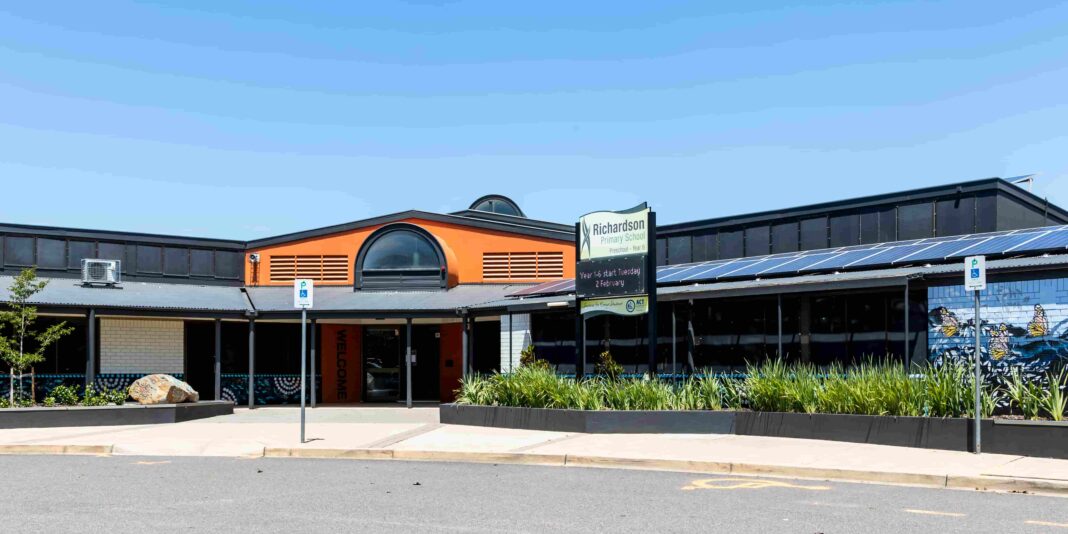Seventy-six of the ACT’s 89 public schools contain lead or asbestos, the ACT Government’s Education Directorate revealed today. The list of schools is available online.
But there is little cause for concern, according to the government and experts alike.
“The risk is really low,” said ACT Minister for Education and Youth Affairs, Yvette Berry. “All of these issues are being managed appropriately; our schools are safe; and we will continue to talk with the community.”
More than two-thirds of the ACT’s public schools were built before 1992; in them, lead paint is most typically found on painted timber surfaces including window frames, eaves and handrails, but has also been found in storage and equipment rooms, an ACT Government spokesperson said last month.
Mark Taylor, Professor of Environmental Science and Human Health at Macquarie University, said that although there is no entirely safe level of lead, levels in ACT schools are below the level of concern as used by the National Health and Medical Research Council.
The upper maximum level of lead used inside ACT schools is 110 micrograms per square metre, Prof. Taylor said.
That is “a really tiny amount” compared to Port Pirie, Mt Isa or Broken Hill, where rains of lead-rich dust from smelting and mining deposit up to 3,000 to 5,000 mcg of lead on floors where children play.
“They’re the sorts of concentration we can be concerned about,” Prof. Taylor said.
The ACT levels, on the other hand, would not stimulate an intervention according to the NHMRC.
“I don’t think there’s any evidence that there’s any risk of harm,” Prof. Taylor said.
To become risky, he explained, hazardous materials (lead-based dust or asbestos) need to accessible and ingested.
Hazardous materials are found in elevated levels in plant rooms (not accessed by children) or on higher surfaces. Classrooms are regularly cleaned, mitigating potential exposure. The ACT’s clean-up standards match the best in the world (the United States Environmental Protection Agency), Prof. Taylor said.
Moreover, school-aged children are beyond the age where they put their hands or other objects in their mouths.
Prof. Taylor stated that encouraging children to wash their hands before eating, and not to put things in their mouths was sufficient. “But kids of four, five, six are beyond that sort of advice. That’s the sort of advice you give to young children.”
Every public school with known hazardous materials has a Hazardous Materials Register, so that people doing maintenance or upgrades know where any potentially hazardous materials are before they start work, the ACT government spokesperson said.
Ms Berry said the government has committed $15 million to fast-track removal of hazardous material from schools, based on advice from an expert panel. Some schools will need more maintenance because of their age.
It was impossible to eradicate lead completely, Ms Berry said; encapsulating with paint was the best and safest way.
The ACT government will provide information to schools and parents if concerned.
If parents were really concerned, Prof. Taylor suggested, they should think about their homes. Aged houses and aged buildings contain lead-based paint. “There are proper ways of renovating and preparing homes for modification that reduces any risk of harm.”
The Canberra Liberals have called on the ACT government to publish the list of schools affected for months. Jeremy Hanson MLA, Shadow Minister for Education and Skills, said Ms Berry’s response had been “slow and inadequate”. The day before the government released the names of affected schools, he said he would pursue the list through Freedom of Information.
“While I welcome the Education Minister has finally released the names of affected schools, I am not sure why it has taken so long to get to this point,” Mr Hanson said.
“The government now needs to explain to staff and parents of each affected school how hazardous materials are being managed and rendered safe.
“I also find it concerning that many schools were found to contain hazardous materials, by chance, through general maintenance checks over the holidays. This only further proves that the government is not actively looking for these serious problems in our schools.”



